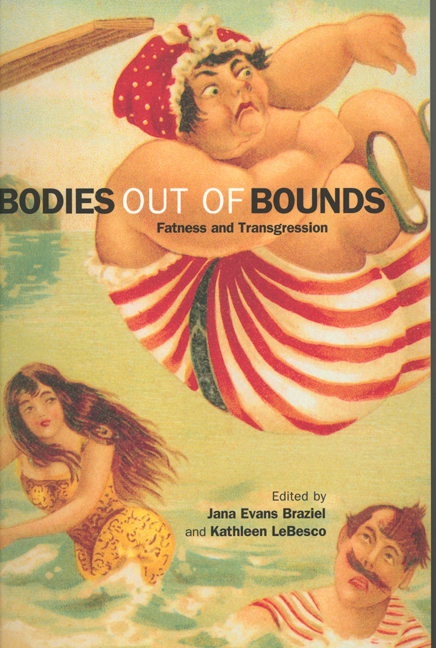As Tracy wrote in a post a few weeks ago one of the great privileges that we have as professors in the Department of Women’s Studies and Feminist Research at Western is that we actually get opportunities to talk to smart students about fitness as a feminist issue.
Writes Tracy, “As we did last year, we got to guest tonight lecture in the Women’s Studies course, “The Body.” This time, our colleague Andrea Allen invited us.”
My half of the class was called “The Obesity Panic” and I talked about the social construction of the “obesity epidemic,” gender, the obese body, and normative thinness. The students had read an excerpt from Eric Oliver’s book Fat politics. The real story behind America’s obesity epidemic.
Oliver is critical about the characterization of obesity as an epidemic, “Such a characterization, however, has many problems: the average American weight gain has been relatively low (eight to 12 pounds over the last 20 years), and the causal linkages between adiposity, morbidity, and mortality are unclear.”
We also looked at Kathleen LeBesco‘s characterization of moral panic, as another way of understanding the social hue and cry about obesity. She writes: “Moral panics are marked by concern about an imagined threat; hostility in the form of a moral outrage toward individuals and agencies responsible for the problem; consensus that something must be done about the serious threat; disproportionality in reports of harm; and volatility in terms of the eruption of panic. “
One of things I talked about was the very low long term success rates of diets. Why do doctors recommend them given the likely outcome? See Well intentioned lies, doctors, and the diet industry and Doctors and unwanted weight loss advice.
Part of the answer is that no one–not even doctors–wants to believe it’s impossible. Certainly none of the students that day wanted to believe it. We all want to hold on to that dream.
Someday our Prince (or Princess will come)! Someday we’ll lose that 5/10/20/40/60/100 lbs!
I told the students that I sometimes looked at Oprah’s failures with a sigh of relief. If one of the richest women in the world can’t do it–with a full time personal trainer and her very own chef–what’s the hope for someone like me?
But my students were skeptical.
Maybe the women who want to lose weight but can’t aren’t trying hard enough?
Maybe, maybe we just don’t how to lose weight?
Some students had specific helpful food suggestions. Others thought maybe the women gained scale weight but last fat and they didn’t know that muscle is denser and heavier than fat.
It was one of the most fervent bouts of class participation I’ve ever experienced.
Of course, weight loss is hard work, they thought. But it’s not that hard. It’s not rocket science. It’s not brain surgery. I showed them the numbers. Their brows furrowed. Here’s hoping I got them thinking.


Can you please come and guest speak at my Uni??? (in Adelaide) We never have enough time in my Public Health lectures to get stuck into this. I love challenging the mainstream acceptance that obesity is the core problem. I have so much more to learn though. So. Keep writing!!! (And thank you).
Would love to!
Great read!